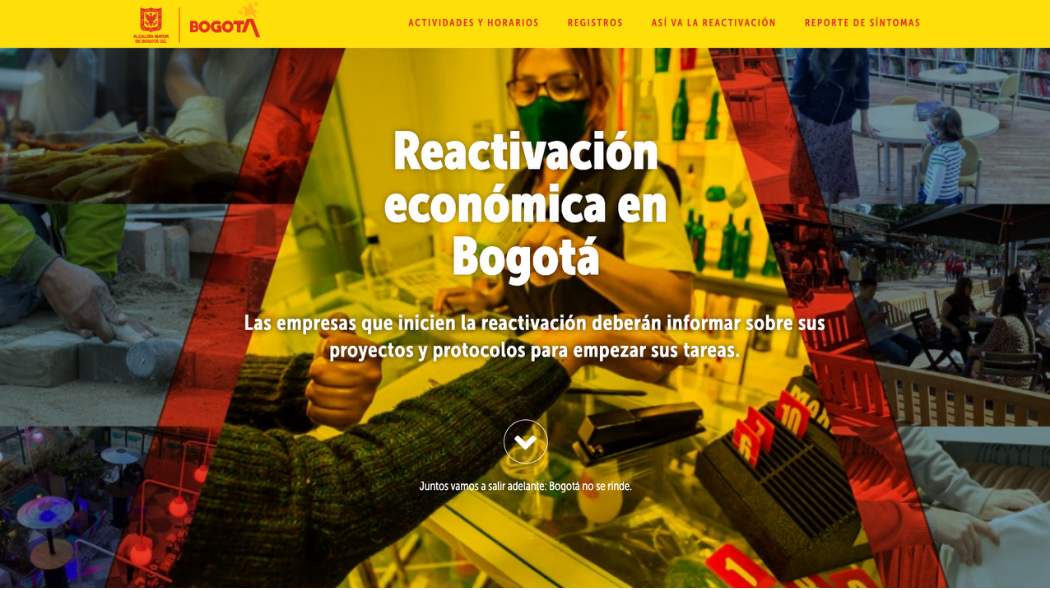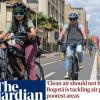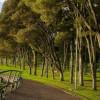During July and August, Bogotá went through the most critical point in the epidemiological management of the coronavirus pandemic. More than 4,000 daily cases were registered in a population of more than 8 million inhabitants, along with an intensive care (ICU) bed occupancy of over 90%. However, due to citizens' compliance with isolation measures, increased testing, intensification of epidemiological surveillance, and increased ICU capacity (from 935 beds in April to more than 2,100 in August), the hospital system resisted, and the city was able to overcome the first peak of the pandemic.
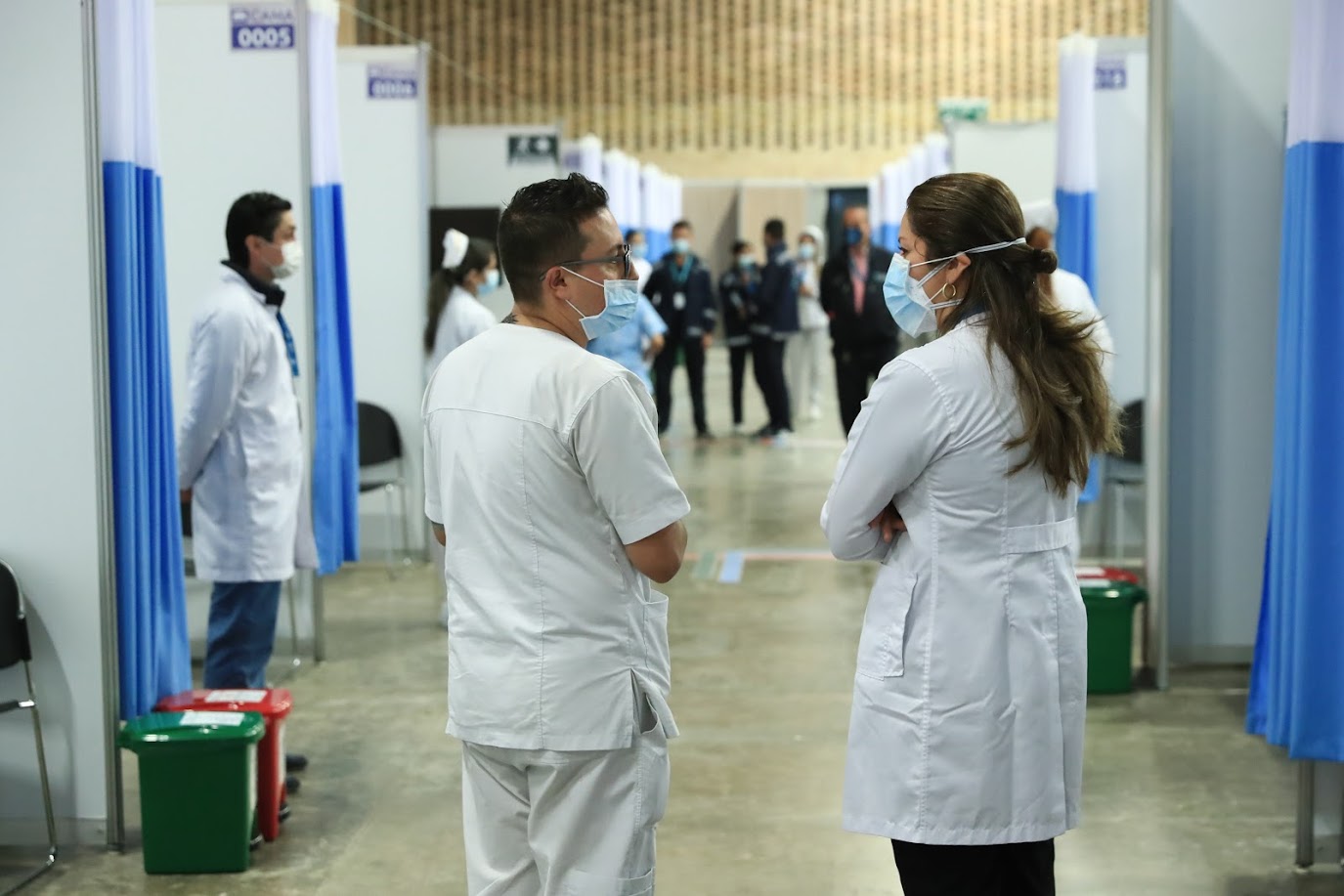
As of August 26, Bogotá began to implement the gradual reopening of the city. Between August and September, pilots were developed to reopen shops, restaurants and the airport. Likewise, a reactivation was implemented that enabled the economic sectors to open by hours and days of the week, to avoid crowds in places and in the mass transport system. Later on, as of September 21, and due to the stability and decline in epidemiological figures, new measures were decided that have been allowing, little by little, the reactivation of economic and social life in the Colombian capital, in a stage that Mayor Claudia López called "New Reality." The measures that were taken in recent months are explained below.
“We have to learn to socialize and work with care, in addition to planning a gradual and very careful return to schools, always in agreement with parents and teachers. We want to take care of the physical health of all citizens, but also their mental health, and our New Reality model is committed to that. All activities have an epidemiological cost, so we must take care of ourselves, "said the city president.
A vital point in the process developed with the citizens, has been the importance given to self-care. For this reason, the district's commitment has been based on civic culture, which puts at the center the responsibility of each one of Bogota´s citizens towards individual and collective care.
Through the model for the New Reality, an economic reactivation was implemented by hours and days, to avoid crowds in the mass transport system, whose occupancy limit increased from 35% to 50%. Likewise, to ensure a gradual, progressive and safe reopening, the platform https://bogota.gov.co/reactivacion-economica/ was created, in which any business or company must register and meet certain requirements to receive authorization to operate. In this way, the district corroborates that companies comply with biosafety protocols, and, at the same time, the transport flows of their employees could be estimated. The model maintained restrictions such as the mandatory use of a mask, social distancing and the Pico y Cedula measure, which limits the days each citizen can enter places of business depending on the last number of their ID.
The economic reactivation system by days and hours worked as follows: from Monday to Thursday operated activities without contact with customers, manufacturing and wholesale trade could operate only after 10 in the morning to control agglomeration flows on public transportation at rush hour. Likewise, commercial pilots began after 7 p.m. within the framework of Bogotá Despierta, a campaign aimed at promoting commerce in the capital, which would remain open 24 hours.
From Thursday to Sunday, there were retail trade activities and public contact services such as restaurants, laundries and hairdressers, among others. During these days, there was also the reopening of cultural and recreational activities in the open air in places such as parks, trails and the bike path, to help the mental health of citizens so that it is affected as little as possible due to isolation.
The essential services, offices and professional services worked from Monday to Sunday, except for Thursdays, prioritizing home-office practices by 70%. The hotel sector was also able to function again with a maximum capacity of 35% and El Dorado Airport reactivated 14 national routes with a maximum capacity of 12%.
This scheduling system also applied to the city's informal commerce agglomeration areas, which received special treatment and care. Sectors were designated for the development of this activity with closings and alternating opening hours. On the other hand, the Institute for the Social Economy (IPES) held pedagogical sessions from August 31st to September 6th to sensitize informal vendors about the importance of complying with biosecurity measures.
In this context, initiatives such as Bogotá a Cielo Abierto were launched, which began as a pilot for three weekends between September 3rd and 20th. Under this modality, places such as restaurants, market squares, gyms and handicraft sales can carry out their activities in the streets and parks, under the open sky, to avoid crowds in closed places. From September 3rd to January 12th, 2021, the initiative will run from Thursday to Sunday. Likewise, the use of bicycles has been encouraged as a means of transport to reach these areas.
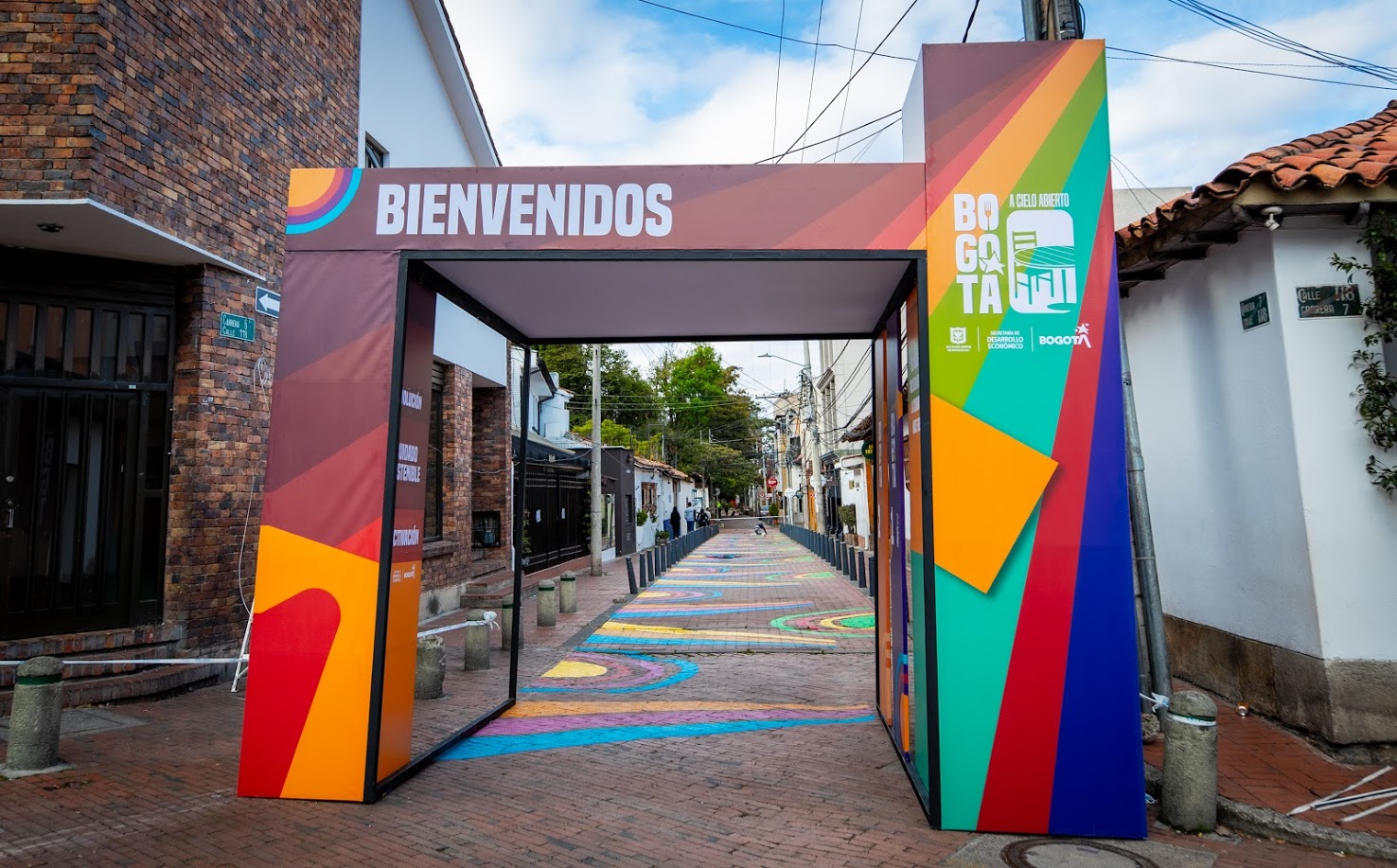
During the first phase of this pilot, the reactivation of 6,500 establishments was achieved, along with 117,000 jobs in the city, of which 47% correspond to women, and a growth in sales of 80% was reported in establishments benefiting from the measure. In the case of restaurants and marketplaces, it was determined that 90% of them already have different platforms to make reservations virtually. Similarly, in the first three weekends of the measure, the percentage of bookings that became effective ranged between 83% and 97% and the use of online payment systems increased by 85%.
Likewise, during these days more than 200 artisans and vendors could start their economic reactivation process, of which 94% affirmed that Bogotá a Cielo Abierto managed to benefit their businesses, as well as 130 gyms through open air classes. As a whole, an 80% growth was reported in the sales of the establishments that were part of the program.
This initiative, together with mobility measures such as the expansion of bicycle lanes in spaces such as the carrera séptima and the bicycle parking service in places of study and work, were awarded by the Smart City LATAM Congress on October 14th during the LATAM Smart City Awards.
By September 19th, the epidemiological rates decreased due to the commitment of Bogota´s citizens and the way in which they adopted daily habits such as hand washing, social distancing and the use of alternative methods of transportation such as bicycles. In this way, the number of daily cases was reduced by 21% and deaths by 33%, a decrease greater than expected with the implementation of the measures, at the same time that a decrease in the occupancy of the ICUs was evidenced to a 54.74%.
For these reasons, new reopening measures were implemented on September 21. On this occasion, the Mayor reiterated the importance of maintaining teleworking as much as possible, guaranteeing biosecurity measures in commercial and workspaces and practicing self-care.
In this new phase, the Pico y Cédula was withdrawn so that citizens could once again attend commercial premises without limitations. Likewise, it was announced that most economic sectors could return to work without restriction by days and hours, as long as they continue to guarantee biosafety measures in their commercial premises. Activities such as the retail marketing of non-essential goods and services, the non-essential goods manufacturing sector, construction in residential and non-residential areas, as well as educational establishments, continue to be restricted by hours.
Bars, discos and public and private events in closed spaces that allow a massive crowd remain prohibited and the sale of alcoholic beverages continues to be restricted between 9:00 p.m. and 10:00 a.m. in commercial premises, and it is only authorized in restaurants when it is done as a complement to dishes served at the table.
“We cannot lower our guard, we are still in a pandemic, we are a city recognized worldwide for handling the pandemic. We are the only city in America that has an open and public data platform. After Montevideo we have the lowest mortality rate,” said Mayor Claudia López.
To read this article in spanish, click here
